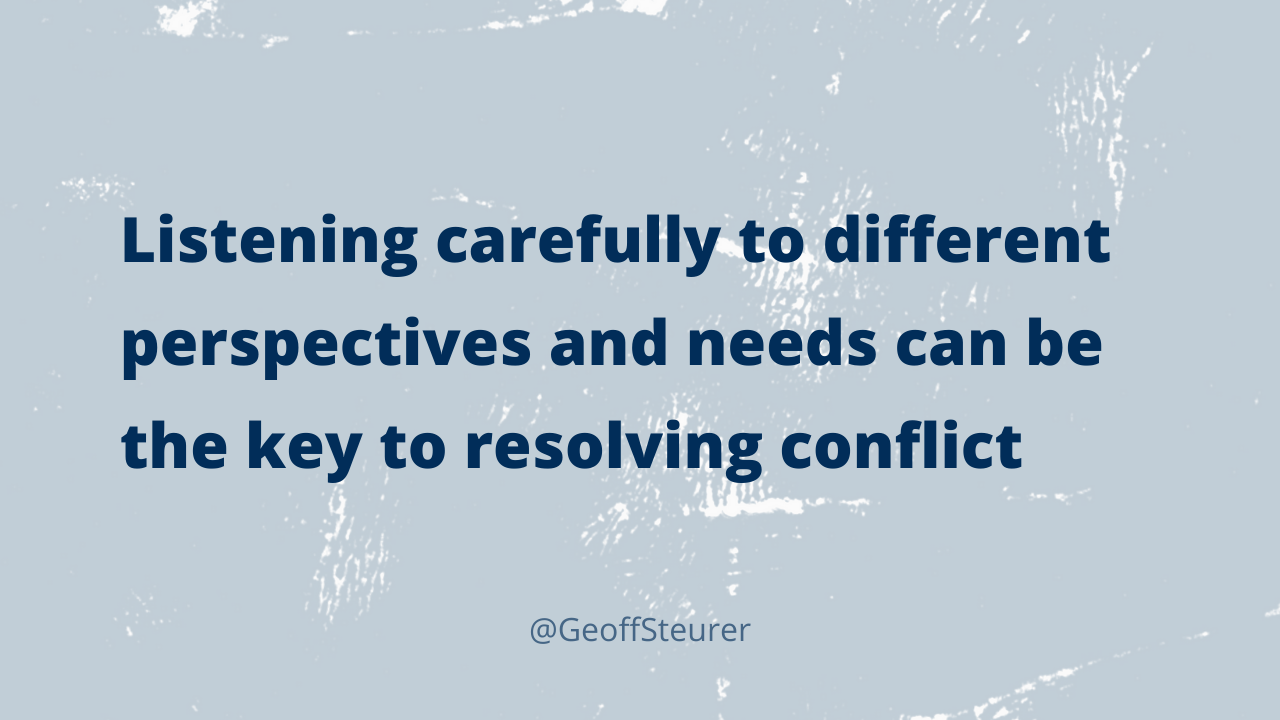
Q&A with Geoff: How can I help my children genuinely care about each other and stop fighting?
Question
I have three of eight children left at home, and it seems like they are constantly fighting with each other. They tease and aggravate and provoke each other, and they seem to have very little concern for each other. We have talked about how they should be treating each other and I’ve shared countless stories and quotes, but it doesn’t seem to be making a difference. It is a constant thing. How can I help them to genuinely care about each other and stop the incessant fighting?
Answer
Contention is one of the most instinctive things we do as humans. We require regular reminders to not allow contention in our relationships. You’ve taught these things to your children, but it doesn’t seem to be getting through. And I’m sure after already launching five of your children, you probably feel like a broken record as you remind your children how they are to treat one another. You’ve taught your children the principles, so let’s talk about what else you might do so they can practice what you’re preaching.
While some of what your children are doing is developmentally normal, you’re concerned about a deeper pattern of contention that isn’t resolving easily. I’m sure you’re no stranger to bickering and struggle with eight children!
When I see a troubling pattern that isn’t resolving, instead of pushing for peace, I find it helpful to zero in on the unacknowledged individual needs that may be driving their behaviors. Even though you can double down and require peace in your home, there may be more information from each child that can help them join you in creating peace.
After working with troubled relationships for the past 23 years, I’ve learned that listening carefully to the different perspectives and needs can be the key to resolving conflict. I’ve learned that it’s unhelpful to try and force peace and unity before the individuals involved feel heard and respected.
I recommend you start by spending individual time with each of the three children to give them time to talk through their feelings about each sibling, their relationship with you and anything else that may be on their mind. You can share your observation that they seem agitated and troubled in their relationships with their siblings.
Counsel with them to see if they’re open to doing something different to help create peace in their home. Invite them to share their needs and thoughts with their siblings either one-on-one or as a group. You’ll know what’s the best format to help create understanding and unity of feeling. You can gather them together and encourage them to share their concerns openly.
Of course, if you meet as a group, you’ll want to provide structure so each person can share with being interrupted or criticized. This takes tremendous patience, time and wisdom to guide these discussions, but it has the potential to help your children feel more known and understood.
It’s also worth considering the expectations you have about the type of culture in your home that creates unity and peace. I believe it’s possible to create this kind of culture in our homes. As you analyze and consider the culture of your current family, recognize that something in your family culture has allowed your children to believe that their treatment of each other is acceptable.
I recognize that you’re constantly teaching and redirecting their behavior, but something isn’t quite getting through to them. It can be helpful to establish clear boundaries around what’s expected in their family relationships.
For example, I’m certain they don’t torment their friends, teachers, co-workers and other people outside the home in the same way they do their siblings. They are clearly capable of appropriate behavior but are choosing a different way. Perhaps you let them know that socializing with friends or doing extracurricular activities where they give their best to others will be on hold until they resolve the problem of why they’re giving so little to their siblings. You can let them know that the life they’re living doesn’t prepare them to function well in society or in a family.
They can learn that they will be unprepared for life if they’re allowed to bypass the consequences of being a poor family member while showing up to dazzle others with their kindness and respect. This is the time to teach them with appropriate boundaries so they don’t leave your home believing it’s okay to live a double life.
I started out my response by suggesting an invitation to your children to consider their own reactions and work with you to find a solution. If they won’t do the internal work to show up differently in their family, you can still press them with healthy limits so they have opportunities to practice a different way. Of course, I recommend you do it with patience and kindness so your children do not doubt your love and respect for them.
Your children can learn that it’s not healthy to feel entitled to be treated as a responsible and respectful person outside the home when they are acting irresponsible and disrespectful inside the home. They can learn the critical skills of taking another person’s perspective, listening, sacrificing, negotiating, asking for what they need, showing empathy and teamwork.
Please don’t give them a pass on this. They simply haven’t learned these important skills and need a reason to care about mastering these things. They haven’t internalized it because it’s not been required. The late Haim Ginott’s writings on working with children’s strong emotions will give you solid guidance on how to navigate this with your children. Two of his students also wrote a fantastic book on sibling rivalry that can also give you additional support.



